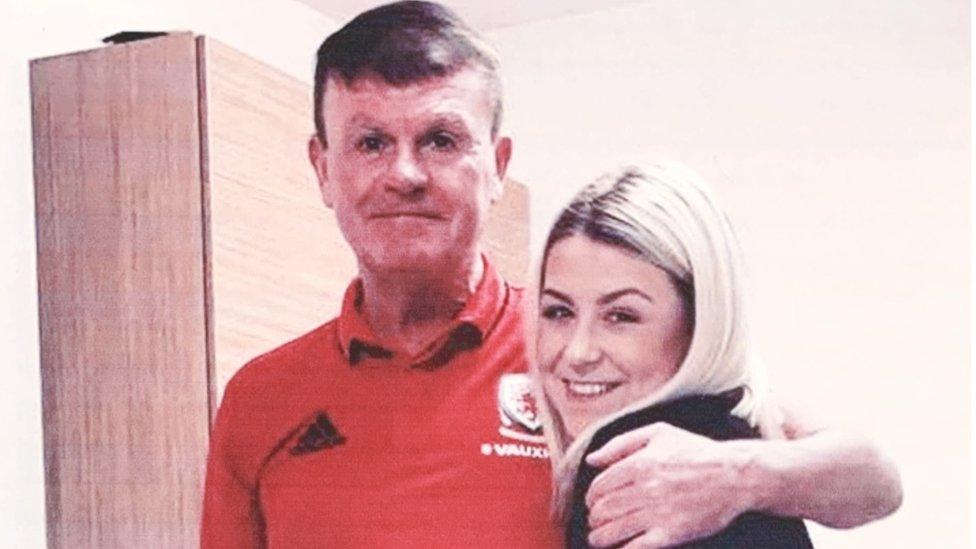Call for more support for families grieving sudden deaths
- Published
"I know grief isn't an illness but illnesses can develop from grief," says Sharon Marie Jones
Families who have lost loved ones unexpectedly have called for more support for people who find themselves in the same situation.
The Royal College of Psychiatrists in Wales said there was scope for more direct support from organisations like the NHS.
Sharon Marie Jones, whose five-year-old son died in a car crash in 2016, said little support was given to families.
The Welsh Government is holding a review into bereavement services.
"When something like that happens to you, your whole world comes crashing down and it doesn't make sense," said Ms Jones, from Capel Bangor, in Ceredigion.
"You try and grasp hold of anything that keeps you afloat in this horrendous nightmare that you're stuck in."
Ms Jones added that there was initially "wonderful support" from a police liaison officer, but in terms of health "there wasn't enough support at all".
"I know grief isn't an illness but illnesses can develop from grief and the support in terms of the medical side isn't available."
She said they were given leaflets to help, but added "the pile of leaflets was left on the kitchen table".
"You wake up in the morning, you don't know what day it is, you're not going to be able to sit down and go through and look for help and you don't know what kind of help you need."
Nearly 5,500 people have signed a petition set up by charity 2 Wish Upon A Star urging the Welsh Government to provide support for a service to ensure families who unexpectedly lose a child or young adult get the support they require.
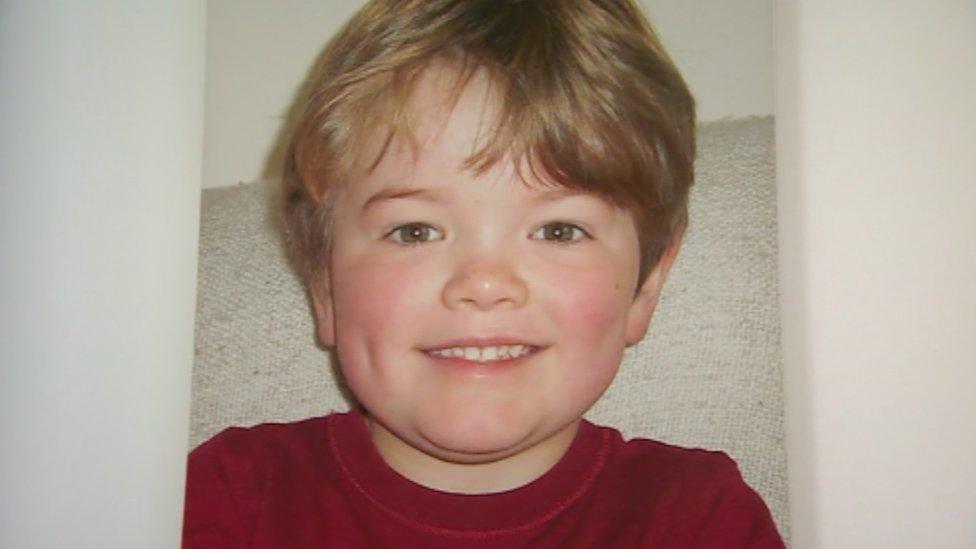
Ned Jones died in a car crash in 2016
If successful, the petition could be debated by the petition committee.
The Royal College of Psychiatrists in Wales warned a lack of support could have long-term consequences, such as individuals becoming anxious or depressed.
Prof Keith Lloyd, the college's chairman, said training front-line health professionals was key.
"When people are bereaved suddenly for whatever reason it can be quite hard to take in information and they need to hear it several times from different people," he said.
"Getting information to people isn't rocket science.
"When you walk into any doctor surgery, any hospital, there is a big rack of leaflets there. It's perfectly normal to see leaflets there about what to do if you have backache.
"It's just as simple to have a range of leaflets about who to turn to if you face something as awful as sudden bereavement."
Nadine Marshall has had help for trauma since 2015.
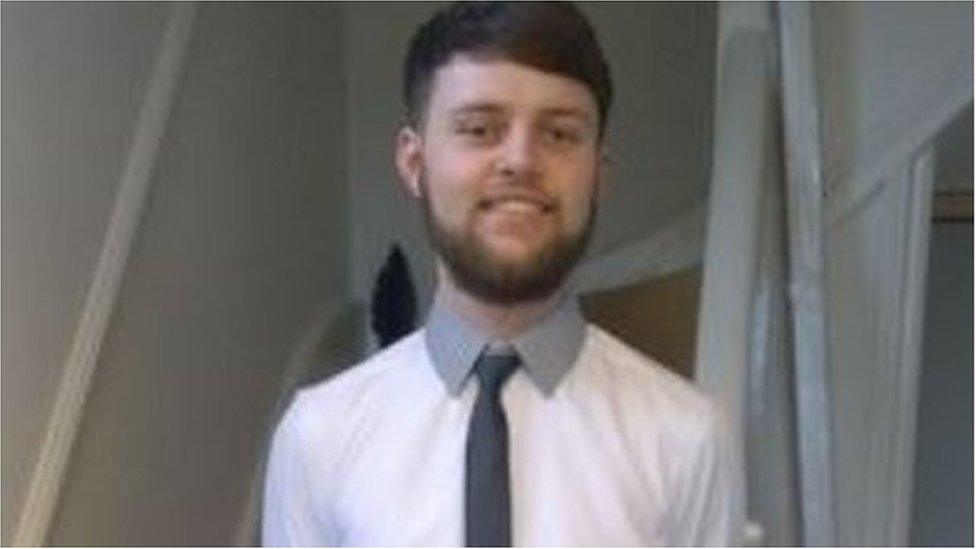
Conner Marshall died after being beaten with a pole at Trecco Bay caravan park
Her son Conner was 18 when he was killed in a caravan park in Porthcawl.
Ms Marshall, from Barry, said there needs to be practical and emotional support as quickly as possible, or at least for people to be made aware it is available.
She added that information needs to be delivered by telephone or in person.
If support is not made available then Ms Marshall fears "we'll be dealing with much more examples of death, suicide and many families breaking down".
A Welsh Government spokesperson said losing a child was "devastating" and it wanted to provide families with "the care and support they need".
It added: "We are working with the End of Life Care Board, Marie Curie and Cardiff University to review bereavement services and consider what else can be done to help people start to deal with such a tragic experience."

Information and advice
If you or someone you know is struggling with issues raised by this story, find support through BBC Action Line.
Manylu's programme can be listened to here and will be repeated on Sunday 7 July on Radio Cymru at 16:00 BST
- Published1 June 2019
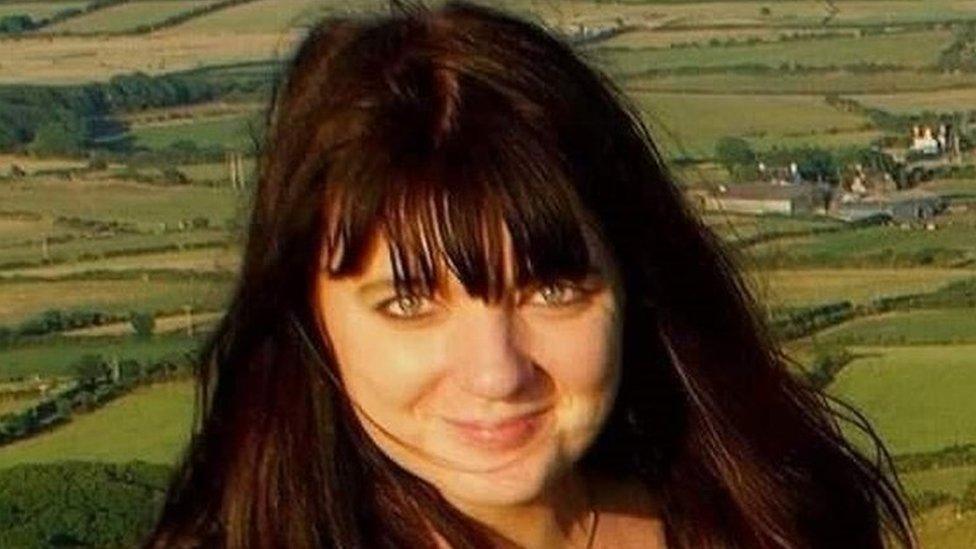
- Published23 August 2018
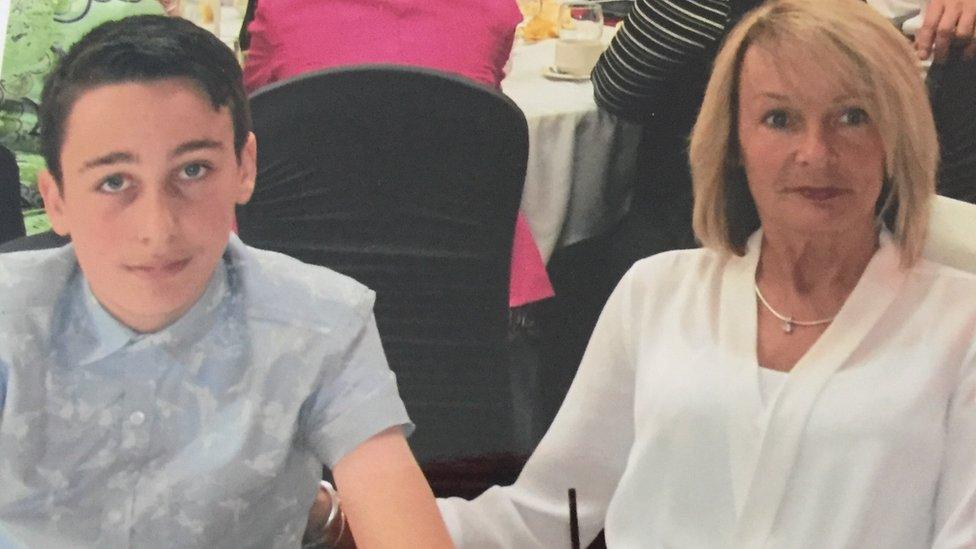
- Published16 February 2019
